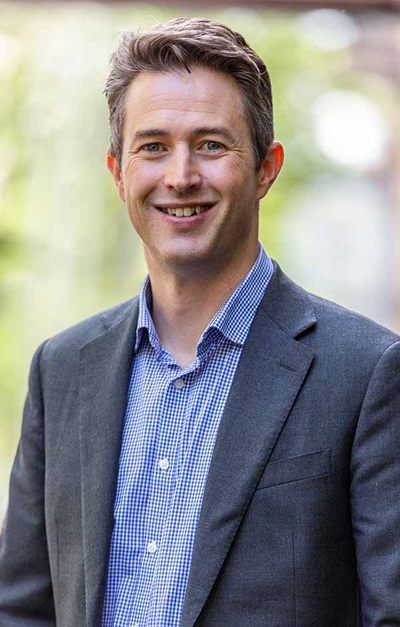2025 | Volume 26 | Issue 5

Fast-paced innovation in the treatments available to treat throat cancer is improving outcomes for patients.
In May, otolaryngology head and neck surgeon Professor Ben Dixon, FRACS, performed a world first dual robot-assisted throat tumour surgery with microvascular reconstruction, alongside plastic surgeon Dr Ed Morrison, FRACS.
The use of robotic technology improves access to tumours, increases magnification and allows greater precision of movement.
This enables surgeons to operate on tumours that might have been inaccessible in the past, decrease the need for radiation and chemotherapy, and lead to fewer complications and long-term health problems around swallowing, speech and taste.
The use of robots in surgery has been transformative. Professor Dixon—who has been developing his skills in robotic technology since 2013—says the emergence of the technology has reinforced the importance of communication skills and collaboration between multidisciplinary teams. “It doesn't matter how much technology we have there's still the need for doctors and healthcare workers to be able to explain these concepts to patients and communicate with each other.
“These skills are getting more important, rather than less.”
Professor Dixon is a strong advocate for the role multidisciplinary care can play in improving communication and patient care. He leads regular meetings with a diverse team of specialist doctors and allied health professionals in his role as Director of the Head and Neck Cancer team at St Vincent’s Hospital and at Epworth Hospital in Melbourne.
“Communication is a constant struggle in the complex environment where we work—from referral of patients to coordinating the care of patients, both in terms of their medical care, scans, biopsies, team meetings, and in working out whether surgery, chemotherapy or radiation is needed. Integrating newer treatments, such as less invasive surgery and immunotherapy, make it even more complex.
“We also need to deal with the psychosocial issues involved with having to be away from home and undergoing cancer treatments.”
Professor Dixon says both patients and surgeons have embraced the benefits of robotic technology, although access is a major obstacle for smaller hospitals and those outside major metropolitan areas.
“We’ve got a lot of patients to treat and a lot of existing healthcare facilities don’t have the resources to invest in this sort of technology. So that’s going to be an ongoing issue as we try to make sure everyone receives the best treatment.
“The reality is that machines like robots cost millions of dollars to install, and many thousands more to run.”
As a young surgeon, the opportunity to travel the United States to learn about robotics was formative in Professor Dixon’s career.
He is concerned that while Trainees are enthusiastic about the use of robotics in surgery, opportunities to travel overseas to develop the skills to work at the forefront of technological innovation might not be as accessible today.
“There are huge benefits in experiencing other healthcare systems and high-volume centres but I worry that it’s going to be difficult going forward for this practise to be as common as it has been.
“We have more postgraduate doctors and a lot of people doing many unaccredited surgical years before they get into training programs. As a result, they’re often older when they complete surgical training, so less likely to be able to undertake these low paid jobs at that time in their lives.”
Technology is key to Professor Dixon’s clinical work. At the new Aikenhead Centre for Medical Discovery, his research team is studying the potential for wearable devices to help surgeons collect data on their activities and manage their health and wellbeing.
“Ultimately, we're spending almost 70 per cent of health budgets on wages of healthcare workers but we don't really measure what they do at all,” he says.
“Surgeons face high levels of burnout and muscular skeletal disorders from performing surgery in high-risk postures for long periods of time.
“We’re looking closely at what they do and what causes stress, fatigue, communication problems and all of these issues within the operating environment. We’re creating technology so we can monitor this in real time and also prospectively collect data for purposes of generating predictive algorithms.”
The research team—involving biomedical engineers, scientists, doctors and allied health workers—hopes the data can lead to more efficient operating theatres and improve the wellbeing of healthcare staff, in turn improving outcomes for patients.
Professor Dixon is no stranger to the toll a challenging job can have on wellbeing, saying surgeons needed to be kind themselves to prevent burn out.
He finds that good sleep is crucial, alongside taking the time to wind down and spend time with his family at the end of the day, and enjoys cycling before work.
He also remains energised by the innovations happening in his field that are improving the lives of patients.
“It makes it a fascinating place to be working as things are always changing. There are treatments that we’re offering now that, 10 years ago, we never would have dreamed existed.”